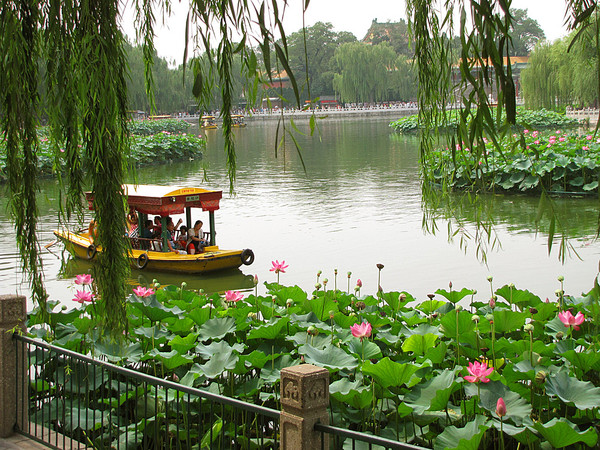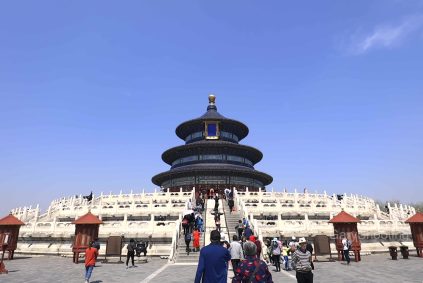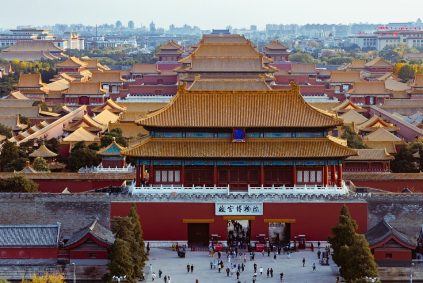Cost-Effectiveness Analysis of Accommodation Options for Beijing Travelers
Choosing the right place to stay in Beijing involves balancing location, fasilitas, and budget to maximize value. With options ranging from historic courtyard houses to modern high-rises, understanding how each choice aligns with travel priorities can help visitors make informed decisions without overspending.
Central vs. Peripheral Locations: Proximity to Attractions vs. Affordability
Staying in central districts like Dongcheng or Xicheng offers unparalleled access to landmarks such as the Forbidden City, Lapangan Tiananmen, and Wangfujing Street. This convenience reduces transportation costs and time spent commuting, making it ideal for first-time visitors or those with packed itineraries. Namun, central accommodations often come with higher nightly rates due to demand and limited space. In contrast, neighborhoods like Chaoyang or Fengtai provide more affordable alternatives while still offering subway access to major sites. Travelers prioritizing budget over immediate proximity might consider staying slightly farther out, using public transit to explore the city efficiently.
Types of Accommodations: Traditional Courtyards vs. Modern Hotels
Beijing’s housing landscape includes traditional siheyuan (courtyard homes), boutique hotels, and international chains, each catering to different preferences. Traditional courtyards immerse guests in local culture, with architecture reflecting centuries-old designs and communal spaces for socializing. These options often emphasize authenticity over luxury, making them suitable for travelers seeking a unique experience. Modern hotels, Sementara itu, prioritize convenience with amenities like fitness centers, business facilities, and multilingual staff. While some upscale properties incorporate traditional elements, their focus on comfort and technology may appeal to those prioritizing rest after long days of sightseeing. Hybrid options, such as restored courtyards with contemporary updates, blend both worlds but may carry higher price tags.
Amenities and Services: Balancing Essentials with Extras
The value of accommodation extends beyond room rates to include included services and additional fees. Basic amenities like free Wi-Fi, daily housekeeping, and 24-hour reception are standard across most budgets, but higher-tier properties often add perks such as complimentary breakfast, airport shuttles, or guided tours. Travelers should assess which services align with their needs—for example, families might prioritize connecting rooms or childcare, while business travelers could seek coworking spaces. Be mindful of hidden costs, such as resort fees or charges for late check-out, which can inflate total expenses. Opting for accommodations with kitchenettes or laundry facilities can also reduce long-term spending on dining and clothing care.
Seasonal Fluctuations and Booking Strategies
Timing significantly impacts accommodation costs in Beijing. Peak seasons, including national holidays like Chinese New Year and Golden Week, see a surge in demand, leading to higher rates and limited availability. Travelers planning visits during these periods should book months in advance to secure options within their budget. Conversely, shoulder seasons (spring and autumn) offer milder weather and fewer crowds, often accompanied by discounts or promotional packages. Last-minute deals may arise for flexible travelers, though relying on them carries risks in a city as popular as Beijing. Using aggregator websites or direct booking platforms can help compare rates across multiple properties, while loyalty programs or membership discounts provide additional savings for frequent visitors.
Local Neighborhood Dynamics: Safety and Cultural Immersion
Beyond price and location, the character of a neighborhood influences overall satisfaction. Safe, well-lit areas with a mix of residential and commercial spaces tend to offer a balanced experience, combining quiet nights with access to restaurants and shops. Hutong districts, while charming, may lack some modern infrastructure, such as elevators or English signage, which could affect comfort for certain travelers. Engaging with local communities through accommodations in less touristy areas can deepen cultural understanding but may require adjusting expectations regarding noise levels or accessibility. Researching neighborhood reviews and safety reports ensures alignment with personal preferences and risk tolerance.
By evaluating these factors, visitors can identify accommodations that offer the best balance of cost, comfort, and cultural relevance. Beijing’s diverse housing options ensure that every traveler—whether prioritizing history, kenyamanan, or affordability—can find a stay that enhances their overall experience.
















